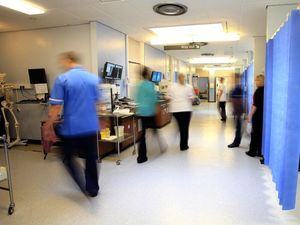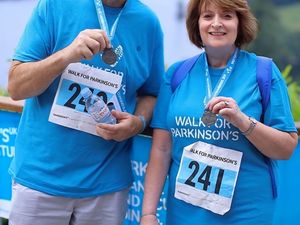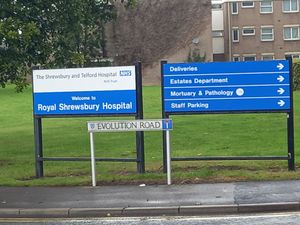Almost half of West Midland cancer patients diagnosed late
Almost half of cancer patients in the West Midlands are diagnosed too late to give them the best chance of survival, according to new calculations.

In just one year, around 12,500 cancer patients in the West Midlands are diagnosed late, at stage three or four – according to the figures released by Cancer Research UK.
And of these, around 7,500 are diagnosed at the most advanced stage – stage four – leaving them with fewer treatment options and less chance of surviving their disease.
In England, almost half of all cancers are diagnosed late. In one year, this is around 115,000 cancer patients. And of these, around 67,000 people are diagnosed at the most advanced stage.
There are lots of things that can influence how early or late someone is diagnosed but workforce shortages are a large contributor.
Chiefs at Cancer Research UK say there is a desperate shortage of NHS medical staff trained to carry out tests that diagnose cancer.
So the charity is calling on everyone in the region to support its Shoulder to Shoulder campaign and take a stand to save more lives. People are urged to add their names to an online petition urging the Government to train and employ more NHS staff to diagnose and treat cancer early.
Last year, the Government made an important pledge to improve the number of people diagnosed with early stage cancer – a jump from two in four diagnosed early to three in four by 2028.
Jane Redman, Cancer Research UK spokesperson for the West Midlands, said: “NHS staff are working tirelessly to offer the best care possible, and the NHS is implementing important new initiatives to address late diagnosis and improve staff efficiency.
“But there just aren’t enough of the right staff available on the ground now, and there are no plans to significantly increase the numbers needed to transform the health service.
“This is why we are calling on people in the West Midlands to add their names to our petition calling on the Government to train and employ more NHS staff to diagnose and treat cancer early.”
An earlier diagnosis can be the difference between life and death. If bowel cancer is diagnosed at the earliest stage, more than nine in 10 people will survive, but if it is diagnosed at the latest stage, just one in 10 people will survive their disease for at least five years.
Emma Greenwood, Cancer Research UK’s director of policy, said: “It’s unacceptable that so many people are diagnosed late. Although survival has improved, it’s not happening fast enough. More referrals to hospital means we urgently need more staff. The Government’s inaction on staff shortages is crippling the NHS, failing cancer patients and the doctors and nurses who are working tirelessly to diagnose and treat them."
An underpowered workforce is not the sole reason for late diagnoses. Other factors include symptoms being hard to spot, GPs having too little time to investigate people thoroughly, low uptake of screening programmes or the cancer being advanced when detected.
Dr Giles Maskell, Cancer Research UK’s radiology expert, said: “We can feel the bottleneck tightening in the NHS – the pressure is mounting on diagnostic staff. We don’t have nearly enough radiologists in the UK right now and far too many patients are waiting too long for scans and results.
“NHS staff are working as hard as they can, but we won’t be able to care for the rising number of cancer patients unless the resources are found to train more specialist staff. Extra scanners are welcome, but they will achieve nothing without staff to run them and experts to interpret the scans. It’s like buying a fleet of planes with no pilots to fly them.”





